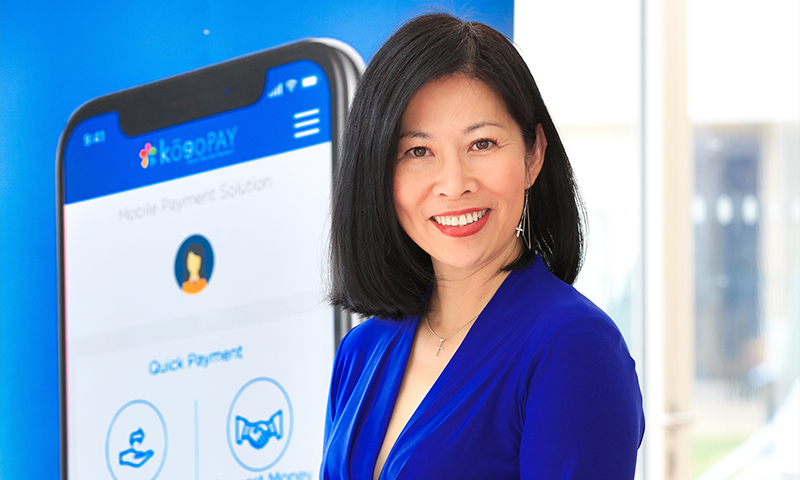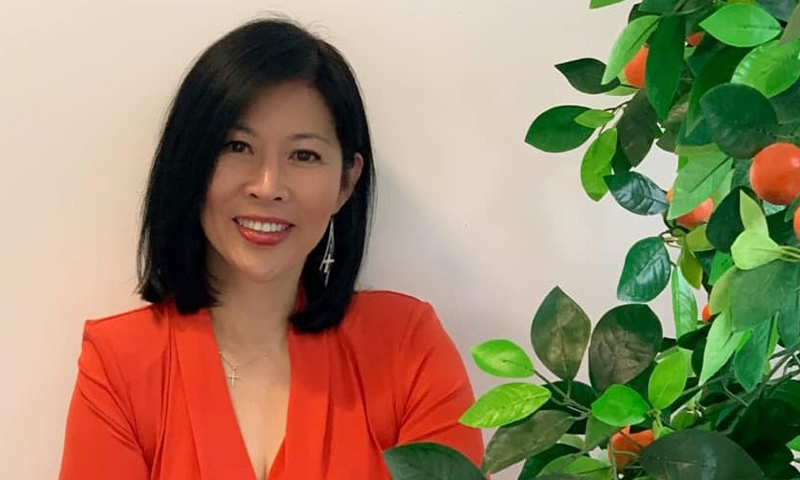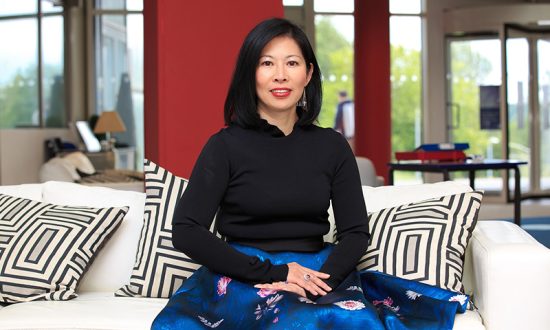Dr. Narisa Chauvidul-Aw is CEO and founder of KogoPAY Group, a socially conscious UK fintech company that has offices in London, Bangkok, Vilnius and Dubai. Narisa received her Ph.D. in 2003 from London School of Economics and Political Science (LSE), Previously she received a Master’s degree from Case Western Reserve University, USA and a Bachelor degree in Accounting and Auditing from Chulalongkorn University.
Narisa has many years’ experience working both in academia and business. She is a qualified auditor (ex PwC) and spent more than 20 years as a senior lecturer and Finance Director. Narisa won the Women in Tech Start up award in 2019 and in 2021 won the WinTrade Global Award for Women in Banking and Finance. She is a mother of 2 teenagers. In her spare time Narisa volunteers, helping orphanage homes on a mountain near the border between Thailand and Myanmar and the homeless in Tokyo.
In a recent chat with the team of CXO Outlook Magazine, Dr. Narisa Chauvidul-Aw (CEO and founder, KogoPAY Group) discusses the inception story of KogoPAY, challenges faced in the leadership role, her success mantra, and a lot more. Following are the excerpts from the Interview.
Please tell us about the evolution of the fintech ecosystem and how much it has changed in the last 2-3 years.
I’m attempting to tap into the evolution of fintech through KogoPAY, which essentially began with a question: how do we use blockchain and other innovative technologies to make a difference to those less fortunate? I believe the space is trending towards this in a big way as businesses react to the changing times whereby people want to materially impact the world for the better. Of course blockchain remains a hot topic; here at KogoPAY we have seized the opportunity to integrate the technology with a crypto wallet, various Web3 applications including the conceptual Metaverse. In the last 2-3 years specifically, blockchain has certainly made great strides towards maturation and dare I say, mainstream adoption. The metaverse has now taken a firm hold in the imagination of many of those building in the blockchain space although it’s not always clear what it means. I take the view that a metaverse offers a totally Web3 digital platform for an individual or business to conduct all of their affairs and gain access to a variety of tools, products and services. The technology underpinning a metaverse may not yet be fully ready to disrupt digital spaces, but both conceptually and technologically it’s advancing rapidly. We should expect great strides on this front in the coming years.
According to you, what are the top three fintech trends driving change in digital payments?
Of course blockchain is all the rage these days, and more generally the Web3 infrastructure being built around the technology. The first trend, I would say digital currencies will be gradually adopted and culminate in the proliferation of Central Bank Digital Currencies (CBDCs).
Another aspect increasing in relevance in the world of fintech is something we hope to fulfil: that of the social impact of new technology. There is an unrivalled opportunity to bolster financial inclusion across the entire world and create something more meaningful than highly profitable fintechs or unicorns securing a dramatically high valuation.
Two of KogoPAY’s products further use innovative technologies including blockchain, and we later plan to implement an AI assistant and data analytics, to better enable seamless peer to peer (P2P) and business to business (B2B) transactions with built-in QR code payment function on the mobile app. These sorts of payments are not yet commonplace in Europe although it’s picking up traction in Asia. Users can choose between fiat and digital currencies to make such payments on our app, in the future. People are free to look at our road map to see where we’re going. This could be huge, especially considering we plan to start rolling out bank accounts: first entirely web-based, but the mobile app will provide a multi-tooled e-wallet.

Tell us about your journey in fintech and how you started KogoPAY? With what mission and objectives was the company set up?
In a few words, our vision is to create an ethical and inclusive cashless ecosystem that facilitates payment and simple money management for everyone, everywhere.
We wish to deliver financial inclusion thereby empowering the unbanked and underserved with a mobile wallet and digital bank account, and enabling them to access traditional financial services and digital currencies simply and safely within our mobile app and banking platform.
I’ve always been interested in new technology and keeping up with new trends. In 1999 during the dotcom boom, while I was a student in the UK, I created my first website about Thailand. The website enabled you to search each area in Thailand and where to go, where to eat and so on: remember, 21 years ago this was a very new thing. The Tourism Authority of Thailand used my website as their official website for a few years and I then sold my website to them.
I have a PhD in compliance and information systems from the London School of Economics (LSE) and started in auditing at Coopers & Lybrand (now PwC). My work took me to both academia and business: I was a Lecturer at Chulalongkorn University in Bangkok, LSE and King’s College in London before assuming a full-time role as Finance Director and later, advisor in Internal Audit and compliance for global companies. I am a serial entrepreneur with involvement in different industries including media, retail and payments.
How is KogoPAY driving cutting-edge innovation in digital payments?
In the past six years blockchain technology, mobile payment and digital banks have been a rapidly growing trend that has surged in popularity. Wallet and QR code payments are quite common in Asia but not in Europe – this is a key reason why I want to be the first Fintech company to promote it here, especially the use of QR code payment. Hopefully one day we can use the KogoPAY wallet and QR payment everywhere around the globe.
Our vision is that anyone should find sending money across the world as easy as sending an email. With KogoPAY, we have created an instant payment system for individuals and small businesses to make international transfers between Europe and Asia. I would like to see people use KogoPAY QR code payments to make donations to charities or pay for food and drink for someone else through our Pay it Forward initiatives. We will indeed encourage this as much as possible.
As the CEO & Founder of KogoPAY Group, what type of challenges do you face and how do you overcome them?
Covid 19 certainly was a challenge! Just before the pandemic started, we had a series of meetings planned to engage with potential investors but these were largely thwarted. As a result, I had to use all my savings and take loans from banks, friends and family. It was incredibly hard, but I persisted and prayed and we successfully raised funds in our pre series A last year. We paid off all debts and since then we have been using the funds to build our new backend system while redesigning a new front end with the exciting mobile app version 2.0 to be launched soon.
KogoPAY is set to host its second TechKogo Forum in Dubai under “Re-inventing Business with Blockchain”. This conference will also set the stage for Kogo Global Technology’s launch, your new company. Brief us about the company, its service offerings, and what makes it unique?
The new company called Kogo Global Technology (KGT) expands upon the vision of parent company KogoPAY and remains focused upon bringing cutting-edge financial and banking services to people from all backgrounds, all around the world. Kogo Global Technology is based in the UAE which in itself is a massive success story illustrating how a community can turn around its fortunes and prosper.
KGT will take on many important roles: we will leverage our expertise and talented team to help build products and platforms for other companies as an IT partner as well as build out a blockchain wallet and banking platform, also crypto ATMs, vending machines, IT infrastructure and cybersecurity as well as medical booths. We have the freedom to turn Kogo Global Technology into a localised ecosystem in its own right and gain unrivalled access to the Gulf Cooperation Council countries who are well positioned to help us deliver on our goals.
You were recently invited as the keynote speaker at the Vienna Thai Women’s Day celebratory event. Apart from fintech and digital currencies, you shed light on some of the biggest challenges faced by women in male dominated businesses. Our readers, especially aspiring women leaders would love to know your take on the issue and what strategies should be implemented by women to succeed in such spaces.
A look at history and what is going on in the world illustrates the collective power of women at work. Here in the UK it was women who won the fight for the right to vote, while women all over the world have survived racial and gender-based oppression, addressed inequalities and achieved success in the workplace. Whilst our work is not done, the collective power of women is a force for good. In business it allows us to combine our talents, share our ideas, solve challenges and push for positive change and the attainment of our goals.
We can learn from the many challenges that we all endure, and my advice is to be persistent. Find support from appropriate networks. I’ve joined the Women in Tech Global Movement and Thai Women in Europe just to name a couple. It is only by coming together that we can create better, long lasting solutions to navigating difficult environments.
I have been invited to speak in various different forums which has been a huge honour. I hope through these I can inspire more women to strive for greatness and to persevere when faced with challenges. I have been through and overcome many challenges over the years which gives me the confidence and know how to face a competitive world. It is only by overcoming challenges that we grow and are then able to help and inspire others to do the same.

Brief us about KogoPAY’s socially conscious efforts and vision.
Democratising access to financial and banking services is a crucial part of the KogoPAY vision. The World Bank reports there are 1.7 billion unbanked adults in the world, what we aim to do is remove the barriers to entry and make it possible for them to access digital payments through an app. Because today many, if not most people, have a smartphone.
We’re excited for the potential of lateral thinking within our ranks. Our unique Pay it Forward system will allow people from all around the world to commit to small acts of charity with considerable upside for the recipients. However, my particular passion is for the homeless. I have worked in orphanages in Thailand and most recently KogoPAY held a fundraiser to support Herts Young Homeless.
What’s your advice to every fintech woman CEO?
We pressingly need to motivate and engage more girls and women in technology. And to this end it’s vital that we act as female role models in tech to encourage them. We need more female focus groups too so that we can support each other.
Fintech is a tough space but if I can do it, so can others. Be prepared for many challenges you’ll face: regulations, compliance, partners, funding, and many more. Be strong and courageous. Never give up. We have to find the purpose of our business – our goal and mission should be something that is worth fighting for. This allows us to overcome the big obstacles when they arrive.
I know my mission and it helps me to persevere. I feel that after the global financial crisis of 2008/2009 our financial ecosystem has moved from one characterised by trust to one characterised by mistrust and suspicion. Risk has increased. Trust levels have declined. I have seen a huge and unnecessary increase in the burden of regulations resulting from the breakdown of trust. We should work towards the goal to regain our trust from regulators, banks, partners, etc. Last but not least: we should enjoy our work too.
What is your vision for the company in the next five years?
We aim to rapidly scale up and expand to every continent through either our presence (establishing offices beyond London, Bangkok and Vilnius) or working with local licensed partners.
In five years’ time, we hope to have a substantial customer base who are happy to use KogoPAY for every payment they make. The more active users we have, the more potential there is for people to pay it forward to help others. It’s really very simple: if you buy a coffee or meal, there will be an inbuilt function to pay it forward and purchase something for the next person.
Another group we’re excited about helping is those in the charity sector. We want them to raise funds quickly and distribute at pace while being more efficient and transparent. This is possible on KogoPAY.
Once people see KogoPAY is a company involved in socially conscious fintech and has become a success, we hope it will inspire others to do the same. But above all we hope to significantly help people conduct their daily lives.
By 2030, I hope to have stewarded KogoPAY to a position of profitability and sustainability so I can leave others to take the mantle and continue doing great work. My aim is to do long-term missionary and volunteer work helping the homeless and children living in orphanages. I want to do more, so in the future I may eventually take a less intensive role such as chairwoman.
You have had an amazing career trajectory so far in the fintech industry with numerous awards and accolades added to your name. What is the secret sauce to your success?
I believe in finding a higher purpose in whichever way you can; for me, that means praying regularly as well as maintaining a solid vision and mission. This is why I’m building KogoPAY, because it’s something I truly believe is worth fighting for. I came close to giving up many times, but because this is a vision so close to my heart I have persevered through all adversity.
You can’t win all the time. I have learned from all my failures and mistakes and moved on.
We’re also lucky to have a great team behind KogoPAY who work well together.
Timing and priorities are important, too. Your work-life balance needs to be sustainable. In my case, when my children were 0-10 years old, I spent more time with them and only took on part-time work as an advisor so I could oversee their schooling and life skills; we even started to share in my passion for volunteering and we have been spending time over the years at an orphanage home very close to my heart in Thailand, near the Myanmar border.
I’m pleased this is how I chose to construct my career trajectory. I saw their formative years and now both boys are doing well at an esteemed boarding school with university in their near futures. I don’t have to worry about them at all, and I was ever-present during their younger years when they really needed me around. That’s incredibly important I believe. A happy family definitely makes for a happier you, and by transference a happier work life.


